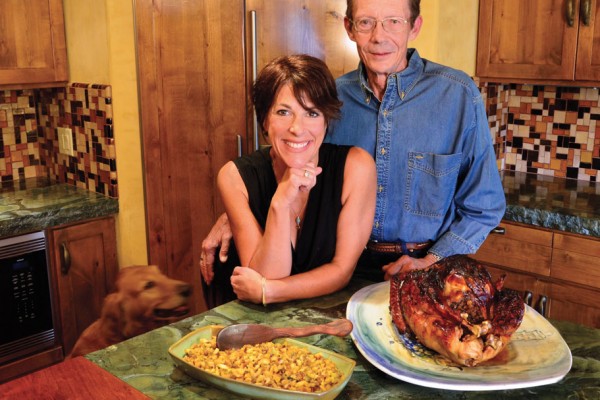Continued (page 5 of 5)
You’ve acted in television shows since 1957, so obviously you’ve seen some major changes. Some argue that the shows being produced on cable television are better than the movies being released. What do you think of television today?
I’ve had a lot of time on my hands lately, and I’ve been catching up on TV. I’ve enjoyed a few of the things that are the rage on TV. I’ve enjoyed The Knick on Showtime. There’s something I stumbled onto on Showtime that I find fascinating, and that’s Penny Dreadful. It’s beautifully done. You’re going back to a volatile period with British lowlifes. They all have violence – we’re fed a steady diet of that these days. There are some pretty gory scenes, but they are fascinating. I’m not shocked at the violence. I’m shocked at the nudity I can find on the late-night porn channel. I never looked for it before, but I just happened to stumble on it now. I stare at it for about five minutes, and then I get bored and move on. If a kid can’t sleep at night, he sure can resort to a lot of that.
What about all the sexual references you hear on primetime? You wouldn’t hear that on Mary Tyler Moore.
I don’t think so. I think you’ve hit on something there [in a British accent].
You played the same character, Lou Grant, on Mary Tyler Moore, a Comedy, and Lou Grant, a drama. You’re probably the only actor to have done so. What was that transition like?
It was a nightmare. I modeled the Lou Grant of Mary Tyler Moore off of my brothers who are loud and cunning and tricky and sneaky. When I got into the dramedy of the Lou Grant series, I realized I couldn’t be the same guy there. So I dug into myself and did it from my own guts.
In the beginning, you didn’t expect Lou Grant to last.
We plunged into the toilet in terms of ratings. Genius advertisers in TV Guide listed it as a comedy, that’s how stupid they were. It took a while for people to realize it was a quality show presenting ideas. It began to build it’s own audience rather than just the faithful from Mary Tyler Moore.
Many actors who have spinoff shows don’t last.
Well, they aren’t as good as I am. And they certainly didn’t have the writers I did. They created good scripts that were meaningful. In the beginning is the word. Always remember that.
So you were part of these wonderful ensembles, and now you’re coming to Sedona with a one-man show. Don’t you get lonely on stage?
Yeah, it’s taxing. After all, we got into this business because we want people to ‘look at me! Look at me!’ I guess without anybody on stage, they have to look at me. I’m being satisfied in one instance, but there’s nothing better than being involved in ensemble work on stage or in film.
You’ve done it all.
I haven’t kissed you yet.
You have a reputation in Sedona for being very accommodating toward fans. What have you learned about being gracious over the years?
I’ve always been gracious. If people are nice to you, it’s incumbent for you to be nice to them. I’ve seen other actors – some with ‘names’ – act like jackasses. They are taking out their aggression on someone defenseless. There are limits, though. The guy that keeps wanting to shoot pictures needs to know when it’s enough.
What is the best thing about being Ed Asner?
Getting to be an actor. Getting to be applauded. Getting to do beautiful words. Having the equipment to roll them off the tip of my tongue. That’s a very ego-gratifying procedure. When I became an actor, I did it for the excitement of doing a character on stage. I didn’t know whether I would succeed or not. At the time, I was well received. I thought I’d do it as long as I could. If I could do it and marry and have a couple of kids and feed them and raise them and educate them, then I won’t ask for any more. I love to be given a line and be able to do the twists and turns it calls for to do that line. A script either hits me or it doesn’t. That’s just the way it goes.
You’re a honey.
MORE SEDONA MONTHLY INTERVIEWS: Susan Sarandon, Tony Curtis, Joan Collins, Martin Sheen, Emilio Estevez, Lea Thompson, Don Black, Beatrice Welles, Frances Fisher, Gary Sinise, Rita Rudner, Michael Moore, Tim Daly, Maynard James Keenan, Richard Schiff, Connie Stevens, Don Hahn, Ed Harris, Marla Sokoloff, Bill Plympton, Robert Osborne, Jane Seymour, Robert Shields
MOVIE CRAZY? Purchase a copy of Arizona’s Little Hollywood: Sedona and Northern Arizona’s Forgotten Film History 1923-1973



